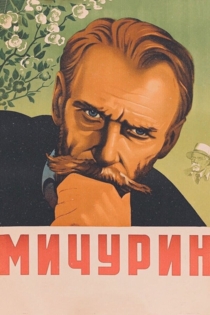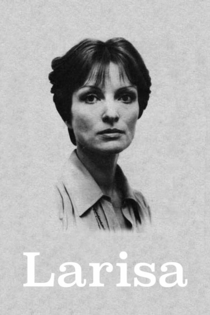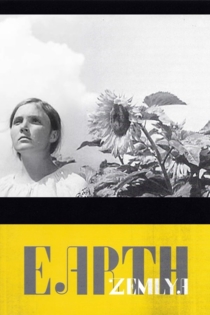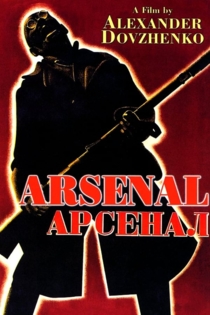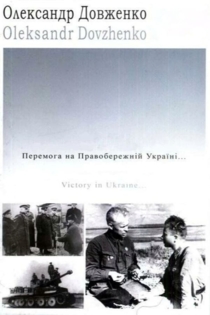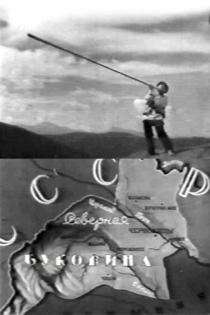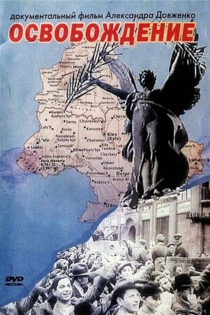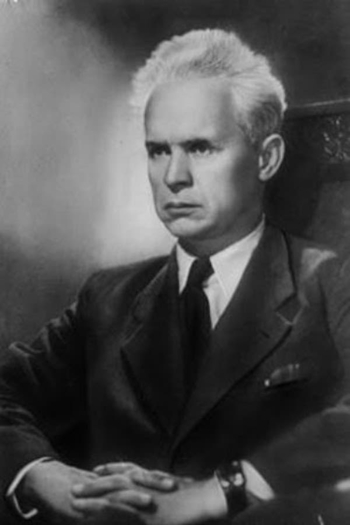
Oleksandr Dovzhenko
1894 - 1956Oleksandr Petrovych Dovzhenko was a Ukrainian Soviet screenwriter, film producer and director. He is often cited as one of the most important early Soviet filmmakers, alongside Sergei Eisenstein, Dziga Vertov, and Vsevolod Pudovkin, as well as being a pioneer of Soviet montage theory.
Although Oleksandr Dovzhenko's parents were uneducated, his semi-literate grandfather encouraged him to study, leading him to become a teacher at the age of 19. Dovzhenko turned to film in 1926 when he landed in Odesa. His ambitious drive led to the production of his second-ever screenplay, Vasya the Reformer (which he also co-directed). He gained greater success with Zvenyhora in 1928 which established him as a major filmmaker of his era. His following "Ukraine Trilogy" (Zvenyhora, Arsenal, and Earth), although underappreciated by some contemporary Soviet critics (who found some of its realism counter-revolutionary), is his most well-known work in the West. For his film Shchors, Dovzhenko was awarded the Stalin Prize (1941); eight years later, in 1949, he was awarded another Stalin Prize for his film Michurin.
After spending several years writing, co-writing and producing films at Mosfilm Studios in Moscow, he turned to writing novels. Over a 20-year career, Dovzhenko personally directed only 7 films.
He was a mentor to the young Ukrainian Soviet filmmakers Larysa Shepitko and Sergei Parajanov. Dovzhenko died of a heart attack on November 25, 1956 in his dacha in Peredelkino. His wife, Yulia Solntseva, continued his legacy by producing films of her own and completing projects Dovzhenko was not able to create.
The Dovzhenko Film Studios in Kyiv were named after him in his honour following his death.
Звенигора
Alexander Dovzhenko
Nikolai Nademsky, Semyon Svashenko
The momentous film stars Mykola Nademskyi as the grandfather of Tymish (Semen Svashenko), whom he alerts to secret treasure buried in the mountains of Zvenygora – Treasure that rightfully belongs to his homeland. The film wonderfully blends both lyricism and politics and uses its central construct to build a montage praising Ukrainian industrialization, attacking the bourgeoisie, celebrating the beauty of the Ukrainian steppe and retelling ancient folklore. Said Sergei Eisenstein of the film, "As the lights went on, we felt that we had just witnessed a memorable event in the development of the cinema".
Zvenygora
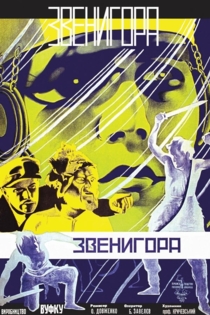
Битва за нашу Советскую Украину
Yuliya Solntseva, Alexander Dovzhenko
A 1943 Soviet documentary war film by Ukrainian director Alexander Dovzhenko and Yuliya Solntseva. It is Dovzhenko's second World War II documentary, and dealt with the Battle of Kharkov. The film incorporates German footage of the invasion of Ukraine, which was later captured by the Soviets.
Ukraine in Flames
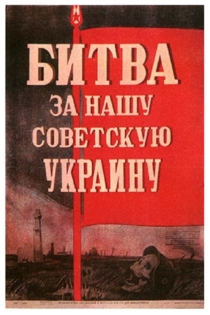
Вася-реформатор
Alexander Dovzhenko, Faust Lopatinsky
Yuri Chernyshov, Dmitri Kapka
Lost film directed by Oleksandr Dovzhenko (his first film) and Favst Lopatynskyi. It is a satire of the NEP period. Vasia, the son of a factory’s worker, is attracted by the romance of adventures. And he goes to look for them. He saves a drowning drunkard who tries to beat him. Vasia escapes from him in a vehicle parked on the shore. However, the vehicle belongs to a superintendent who, when he does not find it, stages its theft. Meanwhile, Vasia exposes priests in the church. As a result, the church is turned into a cinema, and the priest becomes a cinema technician. And finally, Vasia’s last deed is catching a criminal at home and denouncing him to the militia.
Vasya, the Reformer
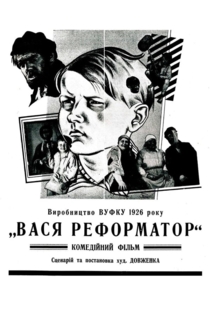
Сумка дипкурьера
Alexander Dovzhenko
M. Buyukli, A. Klymenko
The film's plot is based on the real murder of the Soviet diplomatic courier Theodor Nette abroad. The pouch of the Soviet diplomat, which is stolen by British spies, is taken away by the sailors of a ship sailing to Leningrad who deliver it to the authorities. The intelligence agents make every effort to retrieve the bag.
The Diplomatic Pouch
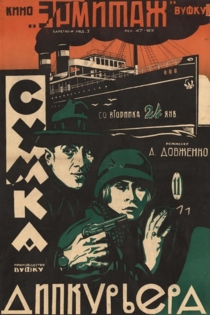
Yagidki kohannya
Alexander Dovzhenko
Maryan Krushelnitsky, Margarita Barskaya
Dovzhenko's debut film, it deals with a dandified barber's attempts to get rid of his "love berry" - his illegitimate offspring. Although a farce, its permissive sexuality can still be considered to be risque.
Love's Berries
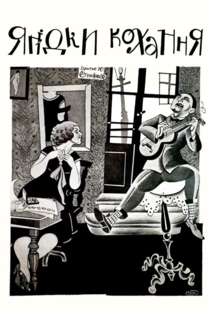
Іван
Alexander Dovzhenko
Konstantin Bondarevsky, Dmitri Golubinsky
After the critical lambasting of his masterpiece Earth, Dovzhenko returned with a more popular iteration of its main motifs. Much like Earth, Ivan concerns itself with the natural rhythms of country life, disrupted by the beat of looming industrialisation.
Ivan
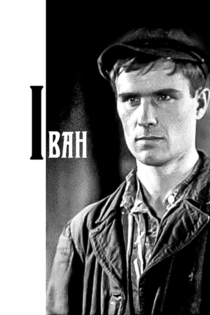
Щорс
Yuliya Solntseva, Alexander Dovzhenko
Evgeniy Samoylov, Ivan Skuratov
The year is 1919. German troops retreat from Ukraine. The Directory, the Ukrainian national government lead by Symon Petliura, takes control of Kyiv. Meanwhile, the Bolshevik division commanded by Mykola Shchors is marching on the capital. The Bolsheviks capture the cities of Vinnytsia, Zhmerynka, and others one by one, but lose Berdychiv to Petliura’s forces. They are demoralized by the defeat. By his personal example of courage and military skill, Shchors inspires the retreating Red troops and leads them to victory over the enemy.
Shors
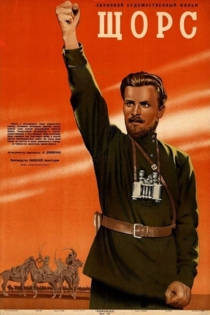
Аэроград
Alexander Dovzhenko
Stepan Shagaida, Sergei Stolyarov
Aerograd is a 1935 Soviet film by Ukrainian director Olexander Dovzhenko, Mosfilm-VUFKU coproduction. It is a futuristic adventure story set in the Soviet Far East. Considered one of two sound masterpieces by Dovzhenko, the other being "Ivan".
Aerograd
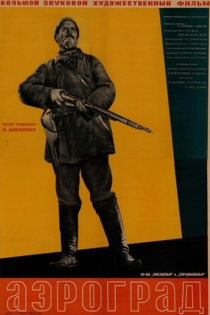
Прощай, Америка!
Alexander Dovzhenko
Liliya Gritsenko, Nikolai Gritsenko
An unfinished film by Aleksandr Dovzhenko, the film is a political lampoon based on the book entitled The Truth about US Diplomats, written in 1949 by the American writer Annabel Bukar. It exposes the underhanded actions of US Embassy personnel in Moscow at the onset of the Cold War. Dovzhenko managed to shoot only a half of the film, mainly the scenes that take place in the American Embassy.
Farewell, America!
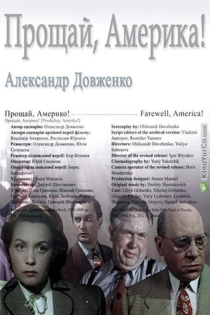
Мичурин
Alexander Dovzhenko
Vladimir Solovyov, Grigori Belov
About the life of the Russian biologist Ivan Michurin. 1912 year. Having rejected American offers to work abroad, Michurin continues his research in the Russian Empire, despite the fact that his ideas are not perceived by the tsarist government, the church and idealistic science. Michurin is supported by prominent scientists of the country and he continues to work hard. After the October Revolution, a small Michurin garden in the city of Kozlov (the biologist's homeland) becomes a large state nursery.
Life in Bloom
